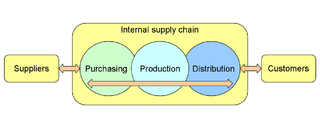
Favorite If Knowledge Management is like a supply chain for knowledge, then the Knowledge Manager is the Supply Chain manager. Image from wikipedia japan I have blogged many times about the analogy between Knowledge Management and a supply chain for knowledge. Like all analogies, this is limited (the view of
Read More
 Shared by Nick Milton July 19, 2021
Shared by Nick Milton July 19, 2021

Favorite This week I have been blogging about the challenge of revolutionising the productivity of the knowledge worker; the challenge which Peter Drucker set for us. The lean working environment for the manual worker (image from greenhousecanada.com).Does the working environment for the knowledge worker look like this? We have looked at the
Read More
 Shared by Nick Milton November 19, 2020
Shared by Nick Milton November 19, 2020

Favorite Over the last two days I have blogged about the challenge of revolutionising the productivity of the knowledge worker, which Peter Drucker set for us. We have looked at the division of knowledge labour, and the automation/augmentation of knowledge work. Today we look at the knowledge supply chain. Parts,
Read More
 Shared by Nick Milton November 18, 2020
Shared by Nick Milton November 18, 2020

Favorite If KM is a lean supply chain for knowledge, how can you measure the amount of waste in the chain? Shredded waste, image from wikimedia commons I have often used the concept of a knowledge supply chain as a way of describing Knowledge Management; the supply chain being a
Read More
 Shared by Nick Milton October 5, 2020
Shared by Nick Milton October 5, 2020

Favorite We all suffer from bandwidth issues in KM – generally due to the deluge of information. Here’s a good principle from the military for dealing with these issues. Information overload by SparkCBC on Flickr The phrase – “Smart push, warrior pull” (described here). is a very useful military principle for
Read More
 Shared by Nick Milton September 16, 2020
Shared by Nick Milton September 16, 2020

Favorite If we see KM as a supply chain, supplying knowledge to the knowledge worker in order that they can make the right business decision, then we can apply concepts such as lean to optimise that supply chain. There are other ways to use lean principles to improve KM, such
Read More
 Shared by Nick Milton July 20, 2020
Shared by Nick Milton July 20, 2020

Favorite This updated reprise from the archives uses the Lean Supply Chain as an analogy for KM, and suggests ways in which we can remove waste from Knowledge Management. There is a lot of value on using metaphors as different ways to look at KM, this blog has frequently used
Read More
 Shared by Nick Milton March 5, 2020
Shared by Nick Milton March 5, 2020

Favorite Another reprise from the archives – the idea of lessons being the “car parts” of knowledge This post is a combination of three ideas, to see if they come up with something new. Idea number 1 – the idea of an organisation as a knowledge factory, sparked by Lord
Read More
 Shared by Nick Milton October 5, 2018
Shared by Nick Milton October 5, 2018

Favorite The Supply Chain analogy for KM suggests several metrics we can use. I have often used the analogy of the supply chain as one way of thinking about KM. This involves looking at KM as a chain of processes supplying knowledge to the user. This analogy has the benefit of
Read More
 Shared by Nick Milton August 13, 2018
Shared by Nick Milton August 13, 2018
![]() Shared by Nick Milton July 19, 2021
Shared by Nick Milton July 19, 2021








